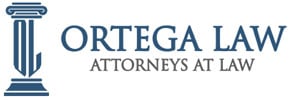Drug addiction is hell to overcome. It can slowly creep back in even if you try your hardest to stop. However, drug use carries the risk of overdose and death, and many incidents go unreported because witnesses are afraid of going to jail.
Seeking help for drug overdose grants immunity
Law enforcement is trying its best to bring those responsible for drug crimes to justice, but it is also aware of how hard it is to fight drug dependency. Even if they try, the withdrawal process is so uncomfortable and terrifying that many users relapse.
However, addiction can cause a person to build tolerance for a substance and want to increase their dosage. With more drugs in the system, an overdose can occur, and sometimes it can be fatal.
If you seek help for yourself or someone you know who is experiencing a drug-related emergency, Maryland’s Good Samaritan Law provides you with immunity for certain crimes. Its purpose is to empower more individuals to seek medical treatment in a drug overdose situation and minimize overdose fatalities.
Law enforcement cannot arrest, charge, or prosecute someone for the following misdemeanors if the evidence is collected after a 911 call for a drug overdose:
- Possession or use of illegal drugs
- Having or using drugs
- Having or using drug paraphernalia
- Minor in possession of alcohol
- Obtaining and/or providing drinks to a minor
Limitations of the Good Samaritan Law
Seeking help, especially when someone’s life is at stake, is always the right thing to do. However, the law has limitations that may discourage people from calling 911.
- Only applies to the person who called for help and may not protect other witnesses
- Immunity does not cover felonies involving drugs
- Authorities may still carry out further investigations and collect evidence
Consider working with a criminal defense attorney if you or someone you know is facing legal penalties for attempting to save a life. Criminal drug charges carry serious penalties, but the law should not ignore your good faith efforts to seek help.

